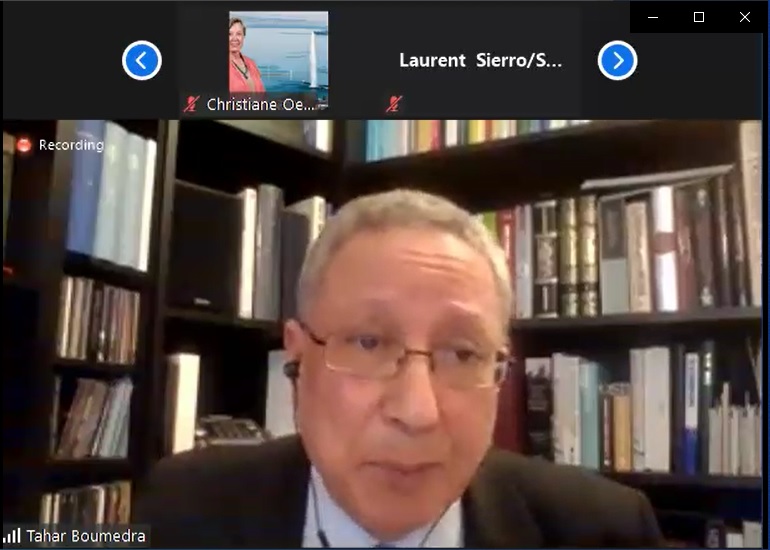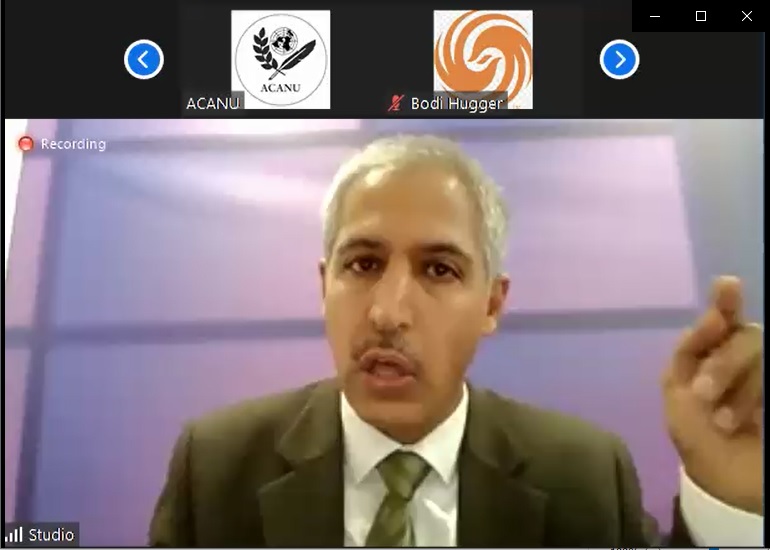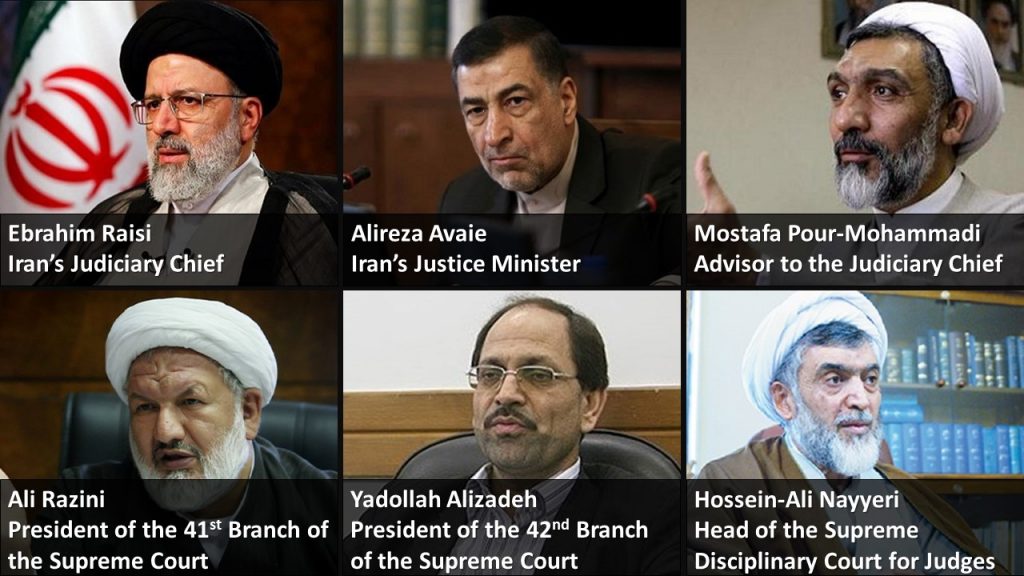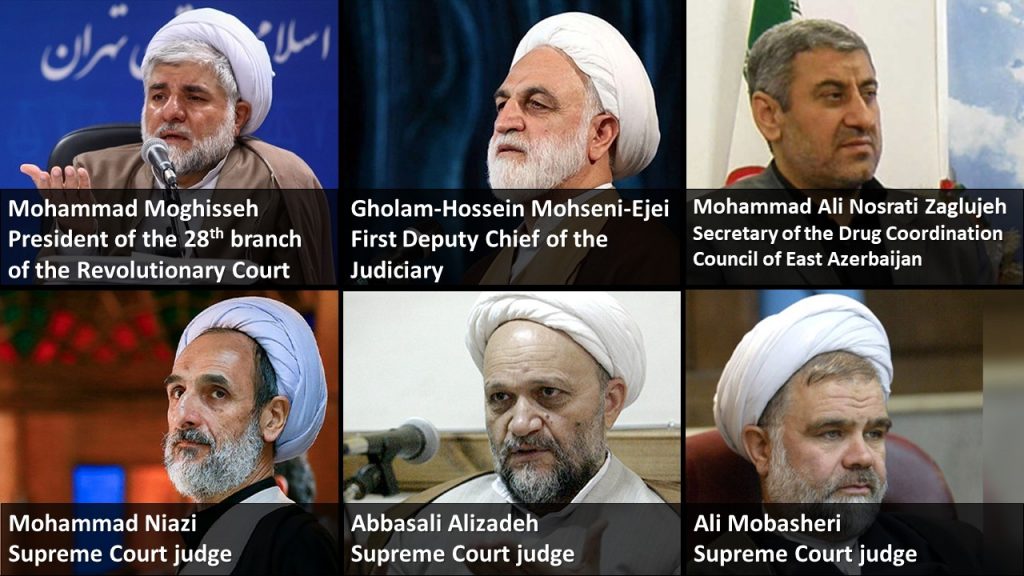Justice for the Victims of the 1988 Massacre in Iran (JVMI) called on the United Nations human rights chief Michelle Bachelet to launch a Commission of Inquiry into the 1988 massacre of political prisoners in Iran on the eve of the 46th session of the UN Human Rights Council in Geneva.
At a virtual press conference hosted by the Association of Accredited Correspondents at the United Nations, representatives of JVMI appealed to the UN High Commissioner for Human Rights to end the “chronic impunity” that exists among Iranian officials.
The JVMI welcomed a letter by seven UN Special Rapporteurs to the Iranian authorities, dated 3 September 2020, reiterating that the 1988 massacre could amount to “crimes against humanity” which warrant an “international investigation”.
Tahar Boumedra, a former chief of the UN human rights office in Iraq, told the press conference that the 1988 massacre took place following a fatwa by Ayatollah Khomeini ordering the execution of all political prisoners who remained loyal to their political beliefs.

“Khomeini’s fatwa is still enforced. This fatwa has never been revoked. So, the 1988 massacre remains continuous even during the recent demonstrations whereby the regime continued its enterprise of executing the opposition outside any judicial process,” Boumedra said.
“This crime has never been properly investigated by independent UN bodies simply because the Iranian regime will not allow any investigation. It is a regime that refuses to allow the international community to address this issue and also refuses to deal with it itself.”
A JVMI investigation has found that members of the 1988 Death Commissions are today holding high office in Iran’s government and judiciary. They include Ebrahim Raisi, Iran’s current Judiciary Chief, and Alireza Avaei, Iran’s current Justice Minister.
Boumedra added: “The Iranian regime is unable and also unwilling to look into this crime and hold the perpetrators of such a heinous crime to account. This is why the UN has recently issued a letter to the government of Iran, signed by seven Special Rapporteurs and mandate holders of the Human Rights Council, with a warning, asking the Iranian government to set up an independent commission of inquiry into the ongoing crimes. But the request of the seven Special Rapporteurs has been ignored. So, it is time for the UN through its specialised mandate holders to call for the establishment of an international commission of inquiry to investigate and identify the perpetrators who are actually still within the structure of the government. Some of them hold very high positions in the regime, including the current Minister of Justice and the current Chief Justice (Judiciary Chief Ebrahim Raisi).”
“The Islamic Republic is based on a constitution that is absolutely contrary to the United Nations Charter because it provides for this continuous war against the ‘enemy.’ And the ‘enemy’ is everybody who opposes such a regime,” Boumedra added.
“It’s time to counter the chronic impunity that exists in Iran,” said Hanif Jazayeri, secretary of JVMI.

He pointed out that in addition to the Judiciary Chief and Justice Minister, members of the 1988 Death Commission hold other senior current Judiciary positions in Iran.
“The Advisor to the Judiciary Chief, the Head of the Supreme Disciplinary Court for Judges, the President of the 33rd Branch of the Supreme Court, the President of the 41st Branch of the Supreme Court, the President of the 42nd Branch of the Supreme Court, the President of the 28th branch of the Revolutionary Court, the First Deputy Chief of the Judiciary, and the list goes on. All of them, and many more, were in 1988 members of the Death Commissions.”
“Without international attention, there is a real prospect of further extra-judicial and political executions being carried out in Iran.”
“The UN experts gave the Iranian authorities two months to respond. They haven’t responded. And quite frankly, they’re not going to. It’s time for High Commissioner Bachelet and the OHCHR to set up an international Commission of Inquiry into mass murders of 1988,” Jazayeri added.


Background to Iran’s 1988 massacre
In 1988, the government of Iran massacred some 30,000 political prisoners. The executions took place based on a fatwa by Supreme Leader Ayatollah Khomeini. Three-member commissions known as ‘Death Commissions’ were formed across Iran sending political prisoners who refused to abandon their beliefs to execution. The victims were buried in secret mass graves. The perpetrators were never charged; to the contrary, they were appointed to more senior positions in the Iranian government and Judiciary. They include the current Judiciary Chief and Justice Minister of Iran.
Iranian officials and state media continue to defend the 1988 massacre and threaten those who demand accountability and justice.
Seven UN human rights experts in December 2020 stated that the 1988 massacre “may amount to crimes against humanity.”

